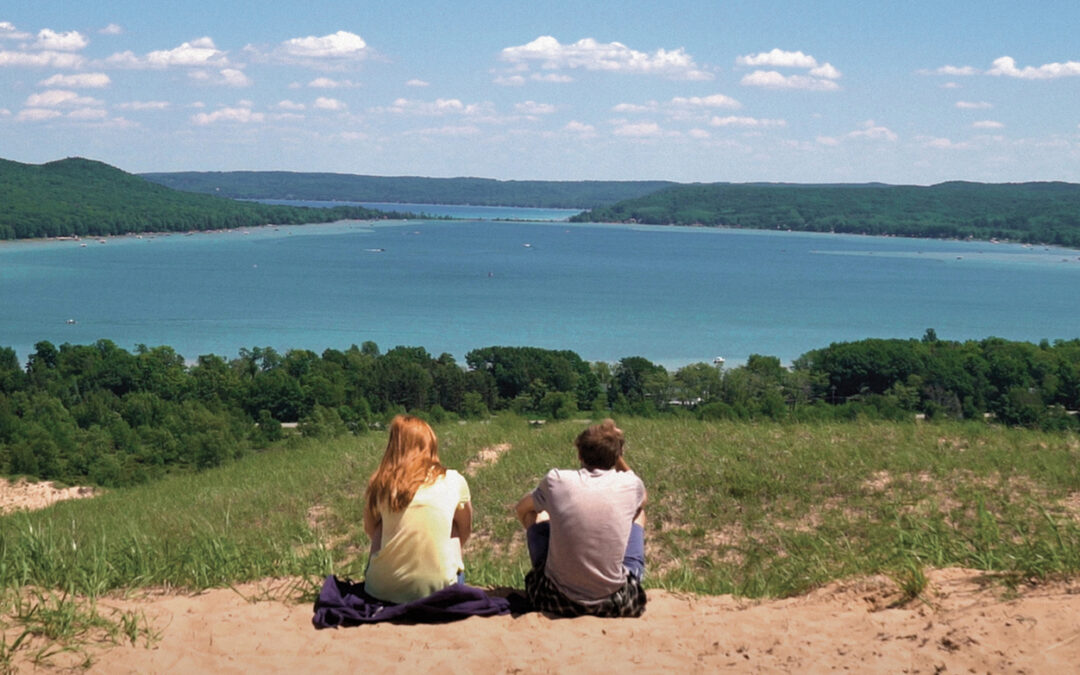(IMAGE: Freestyle Digital Media)
Freestyle Digital Media. 2021. Drama. 76 minutes.
RATING: 3/4
When grief overwhelms, and life seems too complicated, there can be a deep-seated urge to run away, start fresh, and live a whole new life. Episodic man-on-the-run shows like The Fugitive and The Incredible Hulk were, at heart, metaphors for this impulse, with the past always catching up and seeping in in the form of a literal antagonist. While it seems surprisingly soon for a character in a new movie to read Nomadland that way, it’s indisputably timely. At a key moment, Hannah (Chloe Ray Warmoth), the teenage girl at the heart of West Michigan, flees all she knows and pretends to be one of that story’s itinerant workers, seeing a possible release from homebound trauma in the libertarian element of the lifestyle.
Hannah and her big brother Charlie (Riley Warmoth, her real brother who also wrote and directed) are on a road trip to see their grandfather, who’s confined to hospital and may be on his last legs. Hannah’s a precocious high-schooler, while Charlie’s in college. Determined to prove her smarts, she parses all his words for lapses in logic she can seize upon, taking any chance to prove herself his intellectual equal or better. And in terms of pure intelligence, they’re well-matched. But what she can’t face is her lack of emotional maturity – a bad breakup that she cannot rationalize away eats at everything she is. When their car breaks down along the way, emotions soon follow suit.
For at least its first half, West Michigan centers primarily on conversations between Charlie and Hannah, astutely capturing a brother-sister dynamic in a way that few movies do. (Tamara Jenkins’ The Savages comes to mind, but the older, dying relative was more directly involved in that story.) Ironically, the Warmoths look nothing alike – the differences in appearance and demeanor are akin to casting Bradley Cooper and Lindsay Lohan as siblings. The advantage lies in the existing relationship; with any other two actors as good-looking as this pair, the complete lack of any possible romantic tension might have been harder to duplicate.
The second half of the movie sees Hannah having to interact with characters her own age, which at that stage in life makes them substantially different people from the responsible adult (albeit only four years older) that Charlie now is. Hannah makes new friends who are clearly not smarter than she is, so she doesn’t have to try so hard. And with the struggle to be the largest voice in the room gone, the vastness of life asserts itself. Wherever you go, the world is bigger than your personal problems.
Warmoth the elder has an astute eye for details that matter, from the minimalist store where Hannah works to old boat-houses and trashy thrift stores, quickly establishing local color with a handful of key touchstones. Human existence is all car interiors and small buildings at first; then, when things move into the woods, the world opens up with broad coastlines and large bird’s-eye views.
“You and me against the world” is a nice concept and ideal for close family members, but West Michigan reminds us that the world can be a beast at applying pressure to that dynamic. However, in the grand scheme of things, the planet also doesn’t care about your day-to-day baggage. And perhaps realizing that is the key to personally letting a lot of it go. The trick is to find significance in real bonds, and insignificance in the minutiae.
Both Warmoth siblings here show an astute grasp of contemporary humanity. If they can apply it to relationships beyond their own dynamic, they could rival the Duplasses on that score. Regardless, West Michigan stands alone as a portrait of intellect versus emotion, and big picture versus petty details. But if it turns out to be a ground-zero career breakthrough, it’ll become even more worth your while in the years to come.
###

